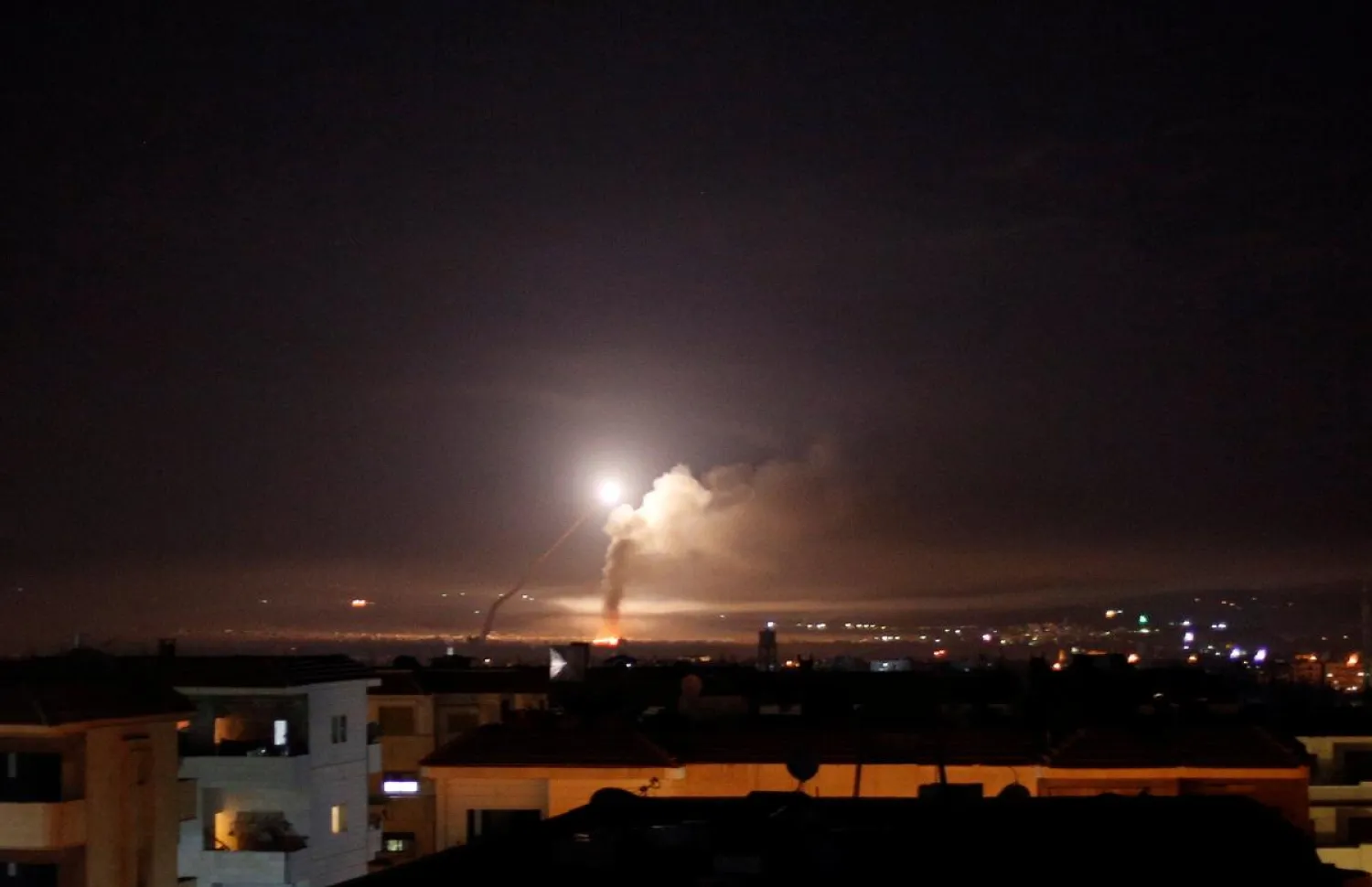Israel fired missiles at the Shayrat airbase in Homs, central Syria, targeting a high-level meeting held between Syrian and Iranian military officials, according to Syrian opposition sources.
Israeli warplanes used Lebanon’s airspace to target Iranian military transport aircraft and a meeting of Iranian Revolutionary Guard Corps (IRGC) and Lebanese Hezbollah commanders, as well as the chief of al-Quds Force Esmail Ghaani, the sources told the German News Agency (DPA).
Residents in Homs governorate reported that the Syrian army launched anti-aircraft missiles and explosions could be seen in the sky of the area.
State-owned Syrian Arab News Agency (SANA) announced that “the Israeli warplanes launched a number of missiles from over Lebanon into the direction of eastern Homs… immediately, the army air defenses intercepted the hostile missiles and shot down a number of them.”
For its part, the Syrian Observatory for Human Rights (SOHR) reported Israeli shelling from the airspace of Lebanon, targeting Shayrat airbase in Homs with more than eight missiles.
“An explosion was heard believed to be caused by anti-aircraft defenses while intercepting these strikes.”
Early reports discussed that Ghaani and head of the Center for Strategic Studies in the Iranian Army, Brigadier General Ahmad Reza Pourdastan were killed in the attack, which was denied by al-Quds Force’s media office.
Earlier in March, Israeli aircraft launched raids on two locations of the Syrian forces in Homs and a-Quneitra, killing one soldier and wounding the other.
DPA quoted, at the time, sources close to the government forces as saying that a soldier was killed and three others were wounded in an Israeli bombing on Shayrat, adding that the Syrian air defenses fired five missiles, while three reached the airbase.
Israeli official authorities did not deny or confirm the bombing of the airbase, however, security sources considered the bombing a warning message to Tehran, stating that the spread of the coronavirus does not mean Israel will turn a blind eye to Iranian activity in Syria.
The sources said that Tehran constantly tries to reinforce its presence in Syria and implement its plan to establish a direct land corridor from Iran to the Mediterranean Sea through Iraq, Syria, and Lebanon.
Meanwhile, Institute for National Security Studies (INSS) published two studies conducted by researchers at the Institute with the participation of a number of generals in the Israeli army, warning about Iranian activity.
One of these studies indicated that the Iranian leadership plans to take advantage of the Israeli and international preoccupation with the coronavirus pandemic to carry out an escalation in its military activity, especially after the leadership failed to address the issue at home.
Israeli army predicts Iran would reduce its aid to Hezbollah and change plans in Syria after a number of Iranian commanders died from coronavirus there, according to Yedioth Ahronoth.
However, the Israeli army is monitoring Iranian activity with "great vigilance" and sending messages to Tehran that it will not be allowed to implement its projects.
INSS noted that Hezbollah and Iran may come to the conclusion that heightened strain on Israel’s security establishment and the dilution of manpower provide an opportunity to advance protected production lines in Syria and Lebanon for an inventory of precision missiles.
Iran may succeed in positioning firepower in Syria and/or Iraq, and in firing toward Israel. In this way, Iran may try to illustrate to Israel the price of the campaign between wars, similar to the escalation of pro-Iranian militia activity against US forces in Iraq, according to the institute.









